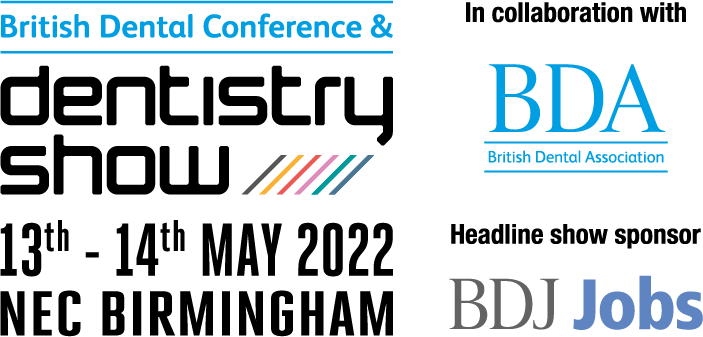Stressed out? Take a time out
Featured Products Promotional FeaturesPosted by: Dental Design 22nd March 2021

Stress. A familiar state for many dental professionals at the best of times. Right now, with extra tasks, constantly changing rules and fresh challenges, stress levels are likely to be even higher. Managing these and doing what we can to reduce the impact on our physical and mental health is crucial and will remain so for months to come.
Consequences to avoid
As you will know – now more than ever – high levels or prolonged periods of stress are closely associated with mental health problems, causing some issues and aggravating others.[i] Potential consequences include the development of conditions like depression,[ii] anxiety, psychosis and post-traumatic stress disorder (PTSD),[iii] to name just a few. Stress can also cause insomnia,[iv] which brings a whole host of its own problems – which include both psychological and physical challenges.
In terms of the physical impact of stress, studies have found structural changes in the brain – including atrophy of the brain – reduced memory, greater difficulty learning, and inhibited function of the immune and cardiovascular systems.[v] There is also evidence to suggest that repeatedly experiencing minor stress can lead to overeating,[vi] which in turn can contribute to obesity and the increased risk of various health conditions associated with that.
With these and many other health consequences linked to stress, it is important to do what we can to protect ourselves, body and mind. Obviously, where possible, we should start by limiting the source of stress. For minor, everyday nuances, this could be as simple as replacing the coffee maker that currently takes hours to warm up, or fixing the blinds so that they don’t fall down each time you close them.
 Unfortunately, many of the major stress factors in our lives right now are very much out of our control. Instead of tackling the source, we may need to improve our management of the effects and reduce the impact on our physical and mental states.
Unfortunately, many of the major stress factors in our lives right now are very much out of our control. Instead of tackling the source, we may need to improve our management of the effects and reduce the impact on our physical and mental states.
Stress buster #1
Take some time out. This might just be an evening off with children and/or household duties delegated, or it might require taking a few days off work completely. The length of break needed will be different for everyone, but it is important that you make a little time for yourself to provide an opportunity to take stock, reflect, make a plan – or just sleep!
Stress buster #2
Get active. Regular exercise, even when you don’t feel like it, can do wonders to help you work through your worries and reduce some of the emotional intensity you might be experiencing. Even if gyms are closed, try to establish the habit of doing some simple activities to get the heart rate up and the body moving. Think basic home gym, online workouts or even just a walk around the neighbourhood a few times a week, in the morning or at lunch-time.
Stress buster #3
Talk. Speaking up, sharing your experiences and asking for help when you need it are all really important for your mental and physical health. You may be surprised and comforted to find that many colleagues and friends are going through something similar and they might be able to suggest ideas that help you through it together. One of the few silver linings of the past year is the sense of community among the dental profession, with individuals more than willing to help and support each other.
Stress buster #4
Reignite your love for something or find a new passion to focus on, whether that is in the practice or in your personal life. This will give you fresh motivation and something to look forward to – a little positivity can go a long way in tough times! At home, consider running, knitting, reading, furniture upcycling, painting or cooking. For work, don’t miss the British Dental Conference and Dentistry Show later in the year to bring you all the inspiration you need to develop your skills and take your career to the next level.
Don’t forget to look after yourself
Dentistry is all about caring for patients, but in these difficult times, don’t forget to look after yourself as well. Stress can have a detrimental impact on your physical and mental health, so better managing the effects could make all the difference to your wellbeing.
The British Dental Conference and Dentistry Show 2021 will be held on Friday 25th and Saturday 26th June, Birmingham NEC, co-located with DTS.
For more information, visit www.thedentistryshow.co.uk, call 020 7348 5270 or email dentistry@closerstillmedia.com
[i] Mind. Information & support. Types of mental health problems. What is stress. https://www.mind.org.uk/information-support/types-of-mental-health-problems/stress/what-is-stress/#:~:text=Stress%20isn’t%20a%20psychiatric,problem%20like%20anxiety%20or%20depression. [Accessed June 2020]
[ii] Tafet GE, Nemeroff CB. The links between stress and depression: psychoneuroendocrinological, genetic and environmental interactions. Journal of Neuropsychiatry. November 2015;28(2); 77-88 https://doi.org/10.1176/appi.neuropsych.15030053
[iii] MQ Mental health. Stress and our mental health – what is the impact and how can we tackle it? https://www.mqmentalhealth.org/posts/stress-and-mental-health#:~:text=Despite%20being%20unpleasant%2C%20stress%20in,to%20mental%20health%20%2D%20is%20vital. [Accessed June 2020]
[iv] Sleep Foundation. Stress and Insomnia. https://www.sleepfoundation.org/insomnia/stress-and-insomnia [Accessed January 2021]
[v] Yaribeygi H, Panahi Y, Sahraei H, Johnston TP, Sahebkar A. The impact of stress on body function: A review. EXCLI J. 2017;16:1057-1072. Published 2017 Jul 21. doi:10.17179/excli2017-480
[vi] Yau YH, Potenza MN. Stress and eating behaviors. Minerva Endocrinol. 2013;38(3):255-267.
No Comments
No comments yet.
Sorry, the comment form is closed at this time.



